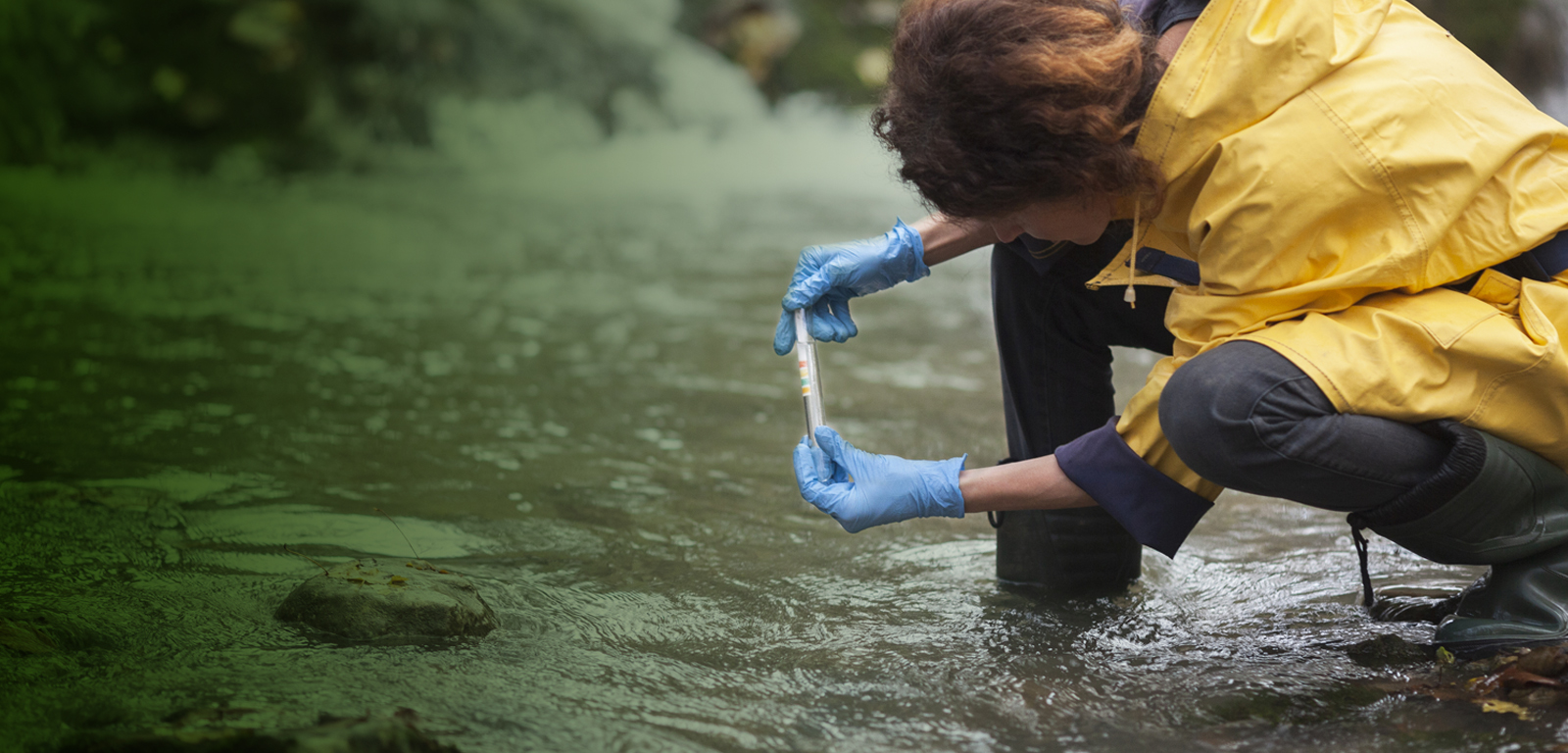Subject
Applied environmental analytical chemistry
General details of the subject
- Mode
- Face-to-face degree course
- Language
- English
Description and contextualization of the subject
Environmental chemical analysis is an optional subject offered along the second semester simultaneously in two masters, Environmental Contamination and Toxicology and Marine Environmental Research. The 4 ECTS of the subject are divided in Lecture-based learning, Seminars, Applied laboratory-based groups learning and workshops. The background of the subject is chemistry so the students that attend to the classes need a medium chemistry knowledge.The main objectives of the course are that the students learn the main workflows to run environmental analysis of legacy and emerging contaminants for target analysis and the use of new analytical strategies such as non-target and metabolomic analysis. Additionally, new sampling strategies, such as passive sampling is also described. The activities included in this module address the acquisition of capabilities and skills to solve complex analytical and ecotoxicological issues through using cutting-edge analytical procedures and methods.
Teaching staff
| Name | Institution | Category | Doctor | Teaching profile | Area | |
|---|---|---|---|---|---|---|
| ETXEBARRIA LOIZATE, NESTOR | University of the Basque Country | Profesorado Catedratico De Universidad | Doctor | Bilingual | Analytical Chemistry | nestor.etxebarria@ehu.eus |
| VALLEJO RUIZ, ASIER | University of the Basque Country | Profesorado Titular De Universidad | Doctor | Bilingual | Analytical Chemistry | asier.vallejo@ehu.eus |
Competencies
| Name | Weight |
|---|---|
| Conocer los procedimientos básicos del proceso analítico. | 40.0 % |
| Conocer unas prácticas de laboratorio correctas. | 40.0 % |
| Desarrollo de programas de control. | 20.0 % |
Study types
| Type | Face-to-face hours | Non face-to-face hours | Total hours |
|---|---|---|---|
| Lecture-based | 20 | 30 | 50 |
| Seminar | 6 | 9 | 15 |
| Applied laboratory-based groups | 8 | 12 | 20 |
| Workshop | 6 | 9 | 15 |
Training activities
| Name | Hours | Percentage of classroom teaching |
|---|---|---|
| Computer work practice, laboratory, site visits, field trips, external visits | 10.0 | 40 % |
| Groupwork | 20.0 | 40 % |
| Individual work and/or group work | 20.0 | 40 % |
| Laboratory practicals | 20.0 | 40 % |
| Lectures | 10.0 | 40 % |
| Seminars | 10.0 | 40 % |
| Seminars and tutorials, laboratory sessions, etc. conducted with the project manager | 10.0 | 40 % |
Assessment systems
| Name | Minimum weighting | Maximum weighting |
|---|---|---|
| Attitude Scales | 5.0 % | 15.0 % |
| Practical tasks | 25.0 % | 35.0 % |
| Team work (problem solving, project design). | 30.0 % | 40.0 % |
| Written examination | 20.0 % | 30.0 % |
Learning outcomes of the subject
Be able to design a new workflow for the target analysis of environmental samples.Be able to describe and select the most appropriate methodology for non-target analysis and metabolomic analysis.
Be able to distinguish among the different passive samplers and to select the most appropriate sampler based on the
target compound.
Be able to use analytical chemistry terminology.
Be able to describe the analytical results orally and writting.
Ordinary call: orientations and renunciation
The conditions for the waiver of the extraordinary call are governed by the Regulations for the permanence of students inuniversity master's degree courses approved by the agreement of the Social Council of the UPV/EHU on July 22, 2015. In
any case it will be necessary to communicate in writing to the academic committee of the master's degree the waiver of
the call 48 hours before the extraordinary evaluation test.
"The assessment criteria included in this guide may be modified according to the rules of the health authorities. All those
modifications will be noticed in advanced and we will provide the means and the tools to assure a fair and proper
evaluation criteria to all the students"
Extraordinary call: orientations and renunciation
Evaluation conditions to be discussed with the lecturers and academic board of the master.The conditions for waiving the extraordinary call are governed by the Regulations for the permanence of students of
university master's degrees approved by the agreement of the UPV/EHU's social council on July 22, 2015. In any case,
the academic committee of the master's degree must be notified in writing of the waiver 15 days before the extraordinary
evaluation test.
Temary
1. Introduction to modern environmental analysis2. Target and nontarget methods of analysis
3. Effect-based analysis and monitoring
4. Active and passive sampling
5. Analysis of polar and non-polar contaminants
6. Method validation and Quality Control
Along the course, active learning methodologies and activities, such as Problem Based Learning, case learning and
cooperative tools such as jigsaw, 1-2-4, kahott and socrative will used
Bibliography
Compulsory materials
Personal computerBasic bibliography
Zhang Ch. Fundamentals of Environmental Sampling and Analysis, Wiley, 2007Jiang G., Li. X (eds) A New Paradigm for Environmental Chemistry and Toxicology, Springer, 2019
Ham B.R., MaHam A. Analytical Chemistry, Wiley, 2016
Harvery P. Analytical Chemistry 3.0 (2019, September 16). Retrieved May 6, 2021, from
https://chem.libretexts.org/@go/page/122341 <br /><br />
In-depth bibliography
Rider C., Simmons J.E (eds) Chemical Mixtures and Combined Chemical and Nonchemical Stressors, Springer, 2018Huckins J.N., Petty J.D., Booij K. Monitors of Organic Chemicals in the Environment, Springer, 2006
Brack W. (ed) Effect-directed analysis of complex environmental contamination, Springer, 2011
Skoog D.A, West D.M Principles of Instrumental Analysis (2019, June 23). Retrieved May 6, 2021, from
https://chem.libretexts.org/@go/page/74268


